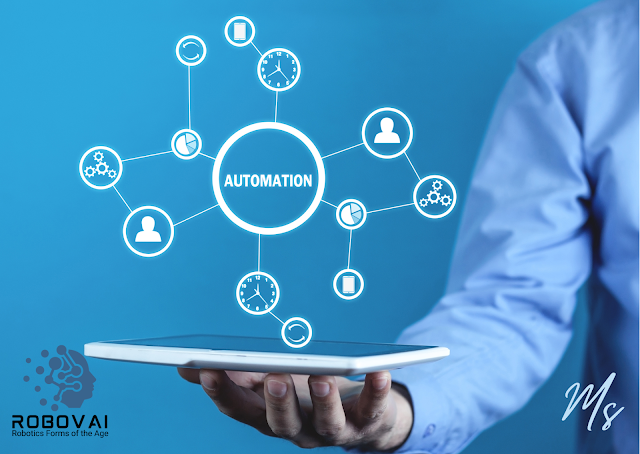The Role of Artificial Intelligence in Achieving Digital Transformation and Smart Technology
In our rapidly evolving world, the integration of Artificial
Intelligence (AI) has transformed a diverse range of industries and sectors,
paving the way for digital transformation and advancements in smart technology.
Artificial intelligence, with its ability to simulate human intelligence and
perform complex tasks, has become a driving force for innovation and progress.
This article explores the significant role of artificial intelligence in
achieving digital transformation and smart technology, highlighting its
benefits, applications, and potential challenges.
Digital transformation and smart technology have become
integral parts of modern society, enabling businesses, organizations, and
individuals to leverage advanced technologies to enhance productivity,
efficiency, and overall performance. At the core of this transformation lies
artificial intelligence, a field of computer science that focuses on creating
intelligent machines capable of learning, reasoning, and problem-solving.
Artificial intelligence encompasses a variety of branches,
including machine learning, natural language processing, computer vision, and
robotics. These technologies empower artificial intelligence systems to process
massive amounts of data, make informed decisions, and apply smart technology in
tasks that traditionally required human intervention. By harnessing the power
of artificial intelligence, organizations can unlock new opportunities,
streamline operations, and drive innovation across various industries.
Benefits of Artificial Intelligence in Digital
Transformation:
1. Enhanced Data Analysis and Insights.png)
Artificial
intelligence enables organizations to extract valuable insights from vast
amounts of data. AI algorithms can analyze complex datasets, identify patterns,
and generate meaningful information, enabling data-driven decision-making. With
the use of AI analytics, companies can gain deeper understanding of their
customers, identify market trends, and improve processes to increase efficiency
and profitability.
2. Automation and Efficiency.png)
One of the key
advantages of artificial intelligence in digital transformation is automation.
AI systems can automate repetitive tasks, reducing human errors and saving
valuable time for employees to focus on more strategic and creative endeavors.
Automation not only enhances operational efficiency but also enables companies
to scale their operations and easily handle increasing workloads.
Artificial intelligence enables organizations to deliver highly personalized customer experiences. Through advanced algorithms and machine learning models, companies can analyze customer preferences, behaviors, and interactions to provide tailored recommendations, personalized marketing campaigns, and customized product offerings. This high degree of personalization enhances customer satisfaction, loyalty, and ultimately business growth.
By leveraging
artificial intelligence techniques, organizations can make faster and more
accurate decisions. AI algorithms can process massive amounts of data in
real-time, identifying trends, patterns, and correlations that may go unnoticed
by humans. With AI-powered decision support systems, companies can enhance
their strategies, mitigate risks, and capitalize on emerging opportunities.
AI-driven digital
transformation can lead to significant cost savings and resource optimization.
Through automation, organizations can streamline processes, reduce manual work,
and decrease operational expenses. AI can also assist in improving inventory
management and logistics services in the supply chain, thereby reducing costs
and maximizing efficiency.
Applications of Artificial Intelligence in Smart Technology:
1. Smart Homes and Internet of Things (IoT).png)
Artificial
intelligence plays a crucial role in achieving smart technology in homes. AI
systems can analyze data from internet-connected devices (IoT) in the
household, learn user patterns, and optimize performance and energy efficiency.
With artificial intelligence, smart homes can learn from user behavior and
provide personalized and convenient experiences, including controlling
lighting, heating, and home appliances based on user preferences.
2. Smart and Autonomous Vehicles.png)
Artificial intelligence forms the foundation of smart technology in cars and autonomous driving. AI techniques such as machine learning and computer vision are applied in analyzing vehicle data and the surrounding environment, enabling cars to make informed decisions and provide a safe and comfortable driving experience. Thanks to artificial intelligence, systems like stability control, intelligent steering, and Advanced Driver Assistance System (ADAS) are improved to enhance safety and efficiency on the roads.
Artificial intelligence contributes to the digital
transformation in healthcare and smart medicine. AI technologies can assist in
analyzing vast medical data, diagnosing diseases, and recommending appropriate
treatments. Medical robots equipped with artificial intelligence help perform
complex surgeries with greater precision and safety. Additionally, AI can be
used in health monitoring, disease prevention, and efficient and innovative medication
management.
4. E-commerce and Customer Service
Artificial intelligence can improve the e-commerce
experience and customer service. By analyzing user behavior, preferences, and
purchase history, AI systems can provide personalized shopping experiences and
accurate product recommendations. Moreover, AI-powered chatbots can enhance
customer service by addressing customer inquiries and providing immediate and
personalized support.
Artificial intelligence can enhance security and smart
surveillance in various environments. Deep learning techniques and intelligent
analysis of images and videos are used to identify unusual patterns and detect
security threats. Artificial intelligence systems can monitor cameras, analyze
behavior, and predict suspicious events, thereby enhancing the safety of public
areas, buildings, and critical infrastructure.
Artificial intelligence plays a significant role in transforming the manufacturing and production industry. AI can be used to analyze production data, improve processes, and increase efficiency. By leveraging technologies such as machine learning and advanced robotics, companies can improve product quality, reduce errors, and increase productivity, leading to improved competitiveness and achieving a balance between cost and quality.
These are just a few examples of how artificial intelligence is utilized in digital transformation and smart technology. There are numerous other applications in various fields. Responsible implementation and ethical use of artificial intelligence are required to ensure the full benefits are realized while maintaining ethics and privacy.


.png)
.png)
.png)
.png)
.png)
.png)
.png)